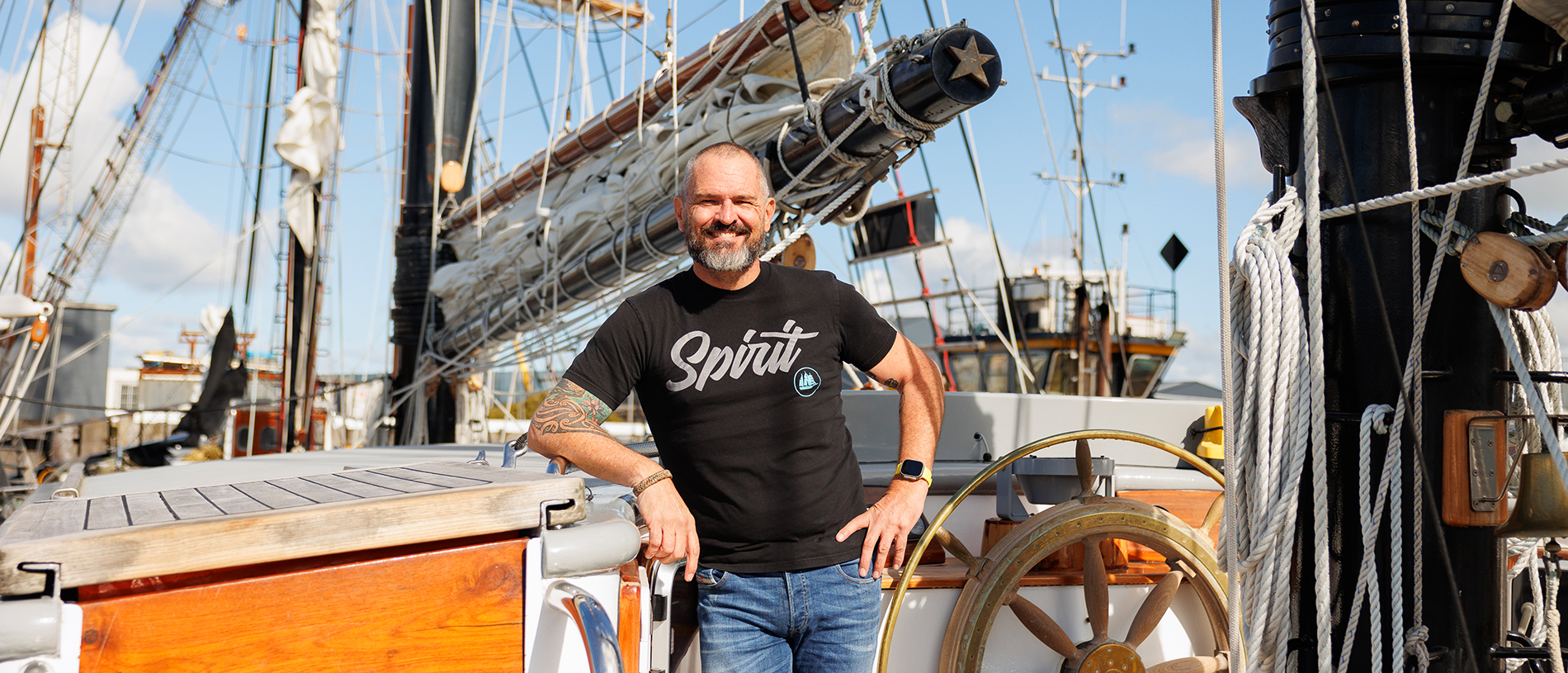
Sail away: The Spirit of Adventure
Spirit of Adventure CEO Bruce Pilbrow describes how 10 days at sea can change a life.
One of the hardest things about being a mermaid is making it look easy.
When she’s working with photographers and, as head mermaid at FreeDive Aotearoa, this comes up a lot for Sacha Williamson, she must look at ease despite the cold. Even when her eyes sting in the salty water and her tail is threatening to drag her down, she must float fish-like, elegant and carefree.
Reality versus fantasy is hilarious, Sacha laughs. “It’s the most brutal sport I’ve ever done and I have been a commercial diver, welding underwater. “This is, for real, the hardest thing; I have to look like I'm not pained, in cold water, with no wetsuit and no mask. My eyes sore and then they want me to get back in the water for another photograph and to look nice...”

But she manages. With a flick of her iridescent tail and a swoosh of her arms, she weaves and curls around light shafts piercing the sea’s surface, making it look easy.
Her Tutukākā-based free dive school includes taking clients – with and without mermaid tails – out to the famously beautiful Poor Knights Islands; she and her team also offer ocean resilience courses which focus on deepening understanding of, and connection with, the sea. These education programmes have extended into school and tertiary environments; she’s passionate about the regenerative practices and sustainability messaging that goes hand-in-hand with learning about survival at sea. She’s passionate about everything ocean; she’s positively salty.
Sacha was a commercial diver for many years, fixing ship hulls and marine infrastructure, working in aid situations in the Pacific, doing “very grunty, masculine work.” Wanting to draw attention to the health needs of the ocean she switched, ten years ago, to scuba instructing and then to freediving, first as a practitioner and then as an advanced-level instructor.
While not every freediver is tempted to don a mermaid tail, the fact that Sacha is mother to three girls made that watery leap inevitable. “I tried to have a neutral home!” she laughs. “Then I realised my house was full of pink and fluff and sequins, and when they started swimming, they wanted mermaid tails, and I said yeah, of course you can!”
But it’s not only young girls and their mothers who like to mermaid. It’s quite the worldwide phenomenon; many of her clients are overseas tourists and around 70% are adult. They are predominantly female, but not all.

“One of my favourite things is to see dads just throw caution out, get in the pool with their kid and have fun. I love to see their big grins.”
As well as the fun factor, it’s liberating – and has a potent element of enchantment to it. “Something magic happens when you go into the water.”
Every body looks good in a tail, she says, and with the loss of gravity comes a graceful, easy freedom of movement.
Swimming with a tail is also extremely efficient, as demonstrated by fish! The deepest discipline of freediving involves using a mono-fin.
“It’s incredibly powerful. You can feel the torque of a mono-fin, when you’ve got the proper one fitted, it’s amazing.”
It takes a lot of training to get to the point of mono-fin freediving in a mermaid tail between offshore islands, though. Many swimmers will be satisfied with an estuary experience, happy to splash droplets from the scales of a glistening tail or to pose on a pool edge for a photo. Others go on to advanced training, keen to hold their breath underwater for long enough to feel like they belong there, to swish through the deep among the fish and kelp. Some want to stay. People have been known to quit high-powered corporate lives to become mermaid instructors.
For Sacha, who has made a life of being in the sea, fleeing an office job for a life as a mermaid makes complete sense.
“It feels like coming home for me. It’s just incredible, the feeling of being in water. I love everything to do with being in water. It wants for nothing. You’re just in that moment, with ease.”
This story is from the Spring 2024 issue of AA Directions Magazine.